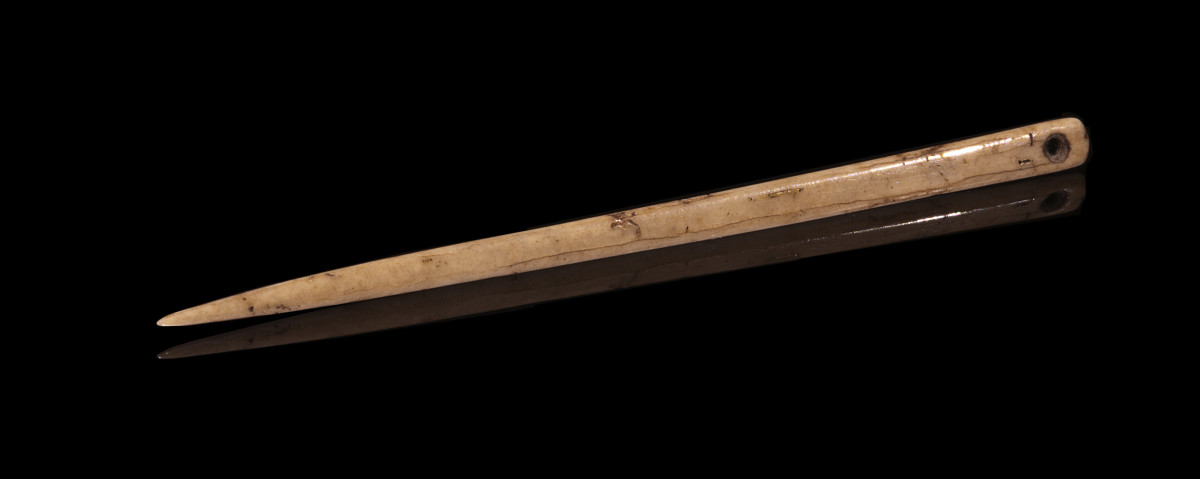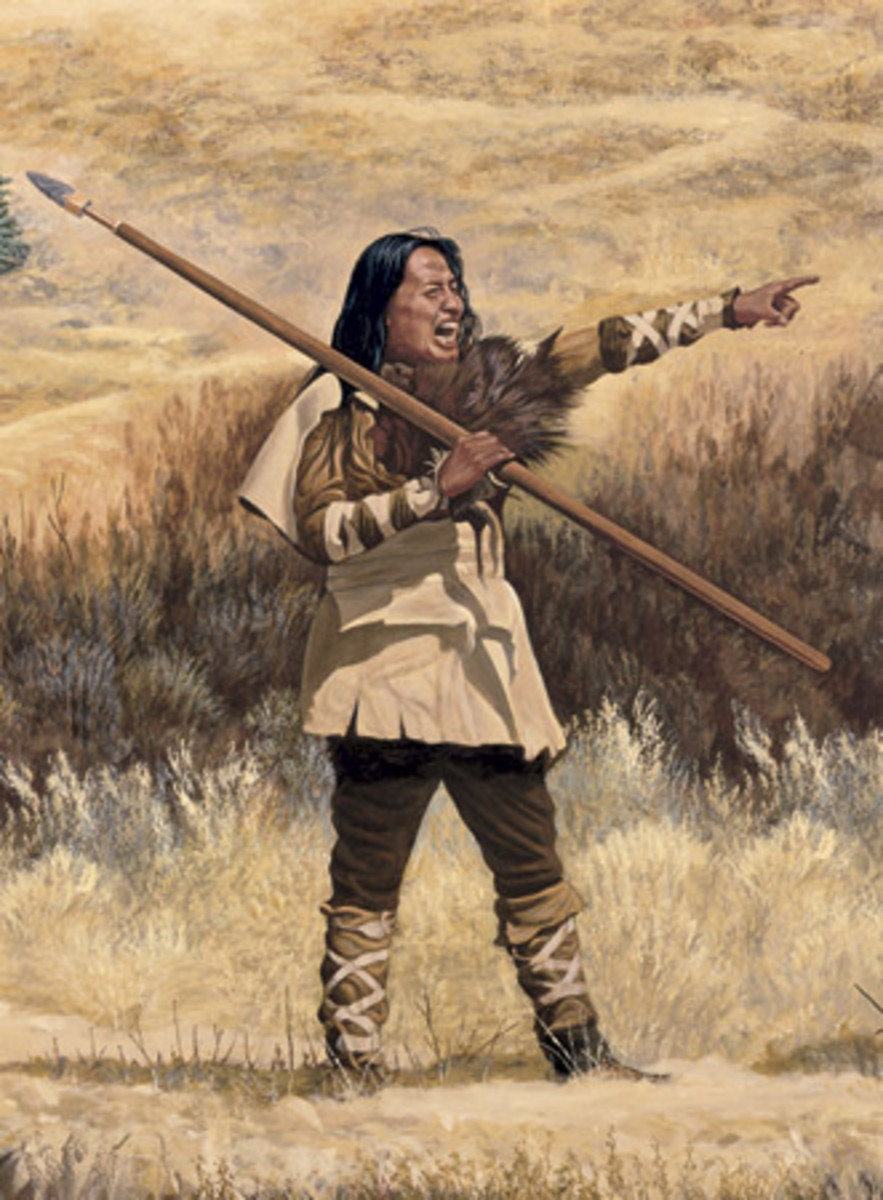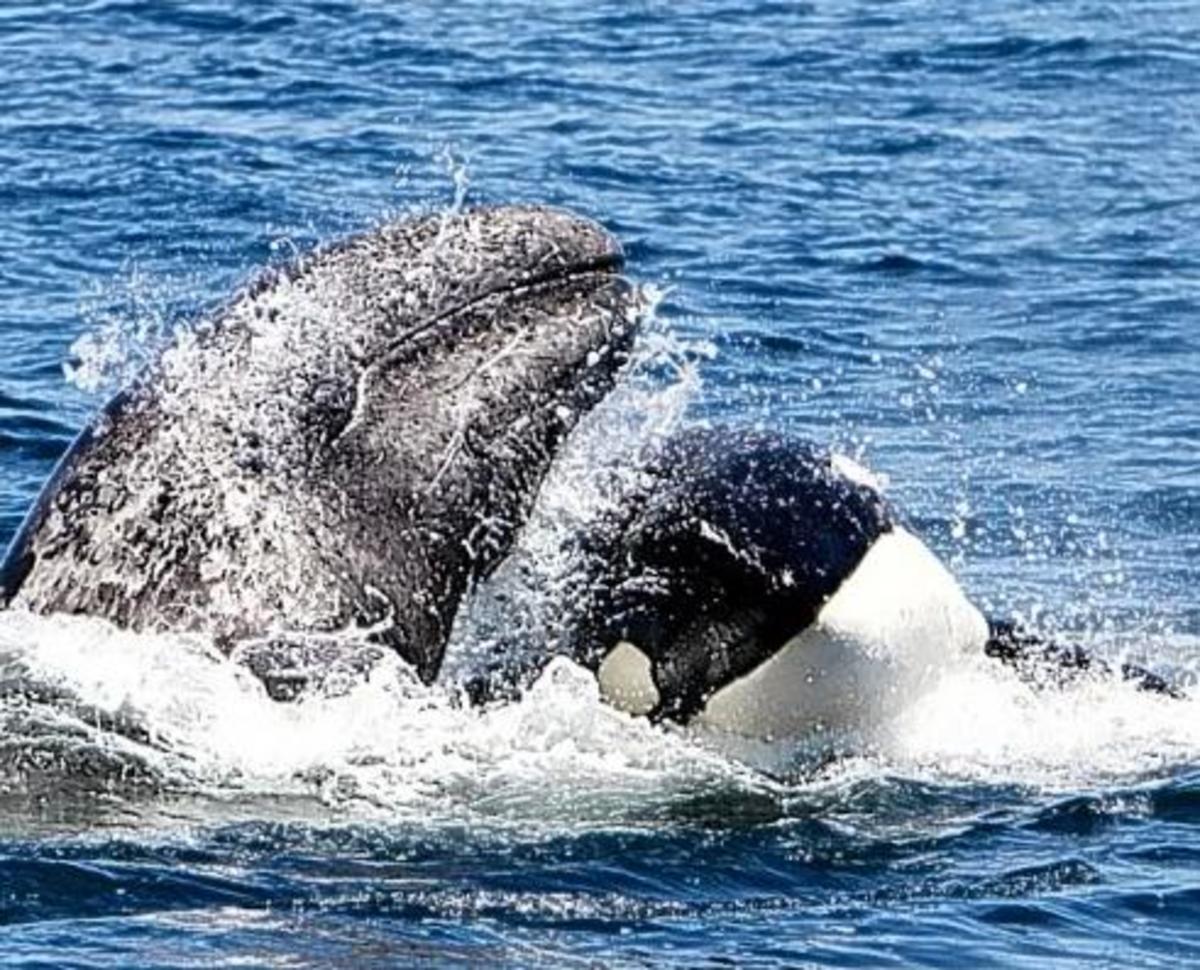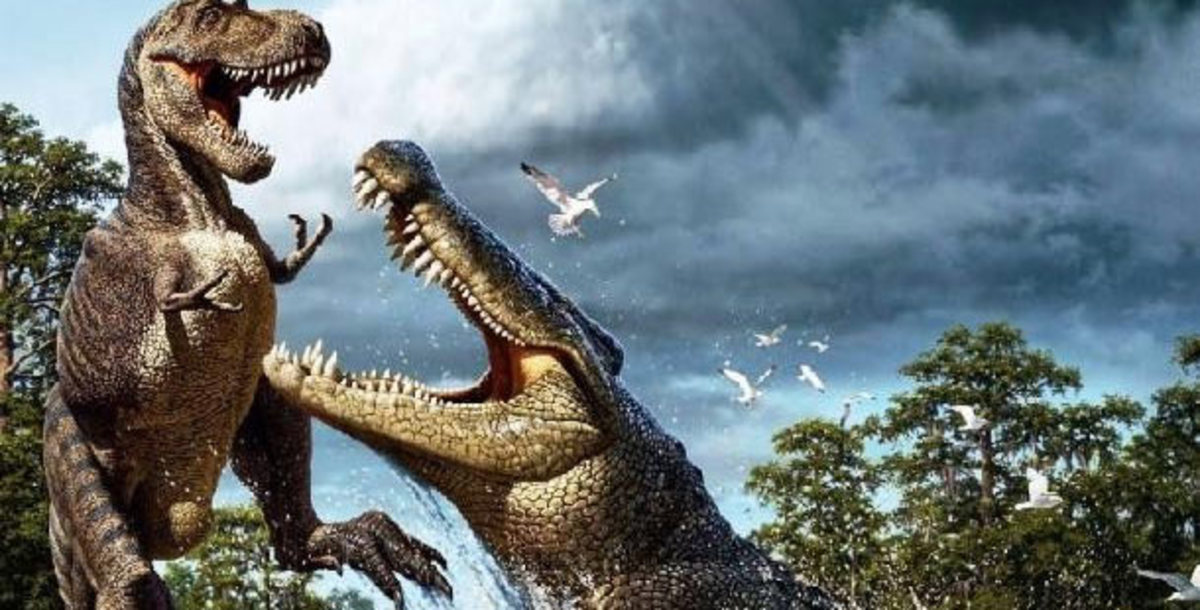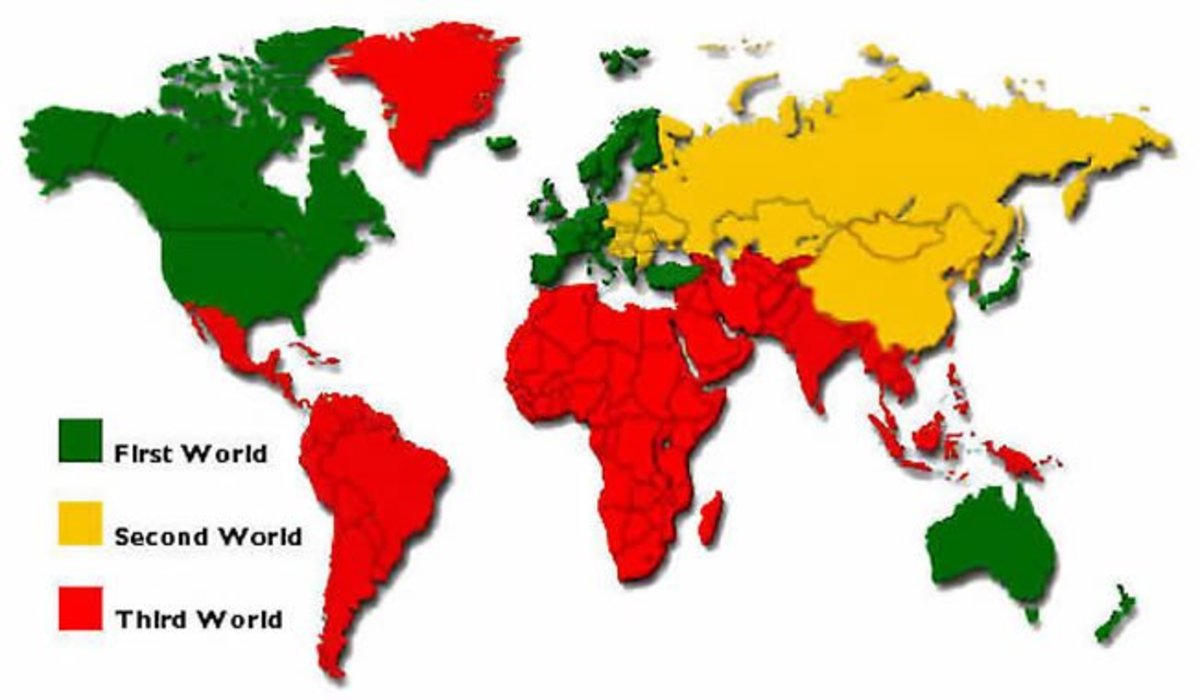The Animal Master At Our Dinner Table: Possible Prehistoric Origin of Saying "Grace": A Speculative Essay
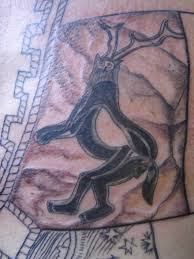
Saying "Grace"
I grew up in a vaguely Christian, certainly nondenominational home. Our "prayer" before eating dinner, was more like a limerick, which went like this:
Thank you for this food
We are about to receive
To nourish our bodies
In Christ's sake.
Amen
That was it, short and sweet. I'm going to lay out a thesis. I could very well be wrong about this, but I offer it to you, for your consideration. It seems to me that every time you sit down to say "grace" before dinner---wherever you are; whatever language you speak; whatever religion you observe; whatever your "race," ethnicity, or national origin---you are ultimately---ultimately---giving thanks to the "Animal Master," for the bounty before you.
The Animal Master is a supernatural figure that emerged from the shamanic tradition, which we know to have developed in Europe and Africa during the Paleolithic period. From there, shamanism spread to Siberia, and then to America and Australia (1).
Let's hear from religion scholar, Karen Armstrong, and how she understands the archeological findings and interpretations of the prehistoric societies (and some present-day) based around the spiritual figure of the shaman.
In 2009 she wrote: "Today there is a remarkable continuity in the descriptions of the shaman's ecstatic flight all the way from Siberia through the Americas to Tierra del Fuego: he swoons during a public séance and believes that he flies through the air to consult the gods about the location of game. In these traditional societies, hunters do not feel that the species are distinct or permanent categories: men can become animals and animals human. Shamans have bird and animal guardians and can converse with the beasts that are revered as messengers of higher powers. The shaman's vision gives meaning to the hunting and killing of animals on which these societies depend" (2).
Still quoting Armstrong: "The hunters feel profoundly uneasy about slaughtering the beasts who are their friends and patrons, and to assuage this anxiety, they surround the hunt with taboos and prohibitions" (3).
Note: I'm going to pause here to make a verbal substitution in Karen Armstrong's description. Where she has used the words 'uneasy' and 'anxiety,' I am going to put in the words 'guilty' and 'guilt.' 'Uneasy' and 'anxiety' are not strong enough for our puposes.
If the hunters, themselves, feel as though they are "slaughtering" their "friends and patrons," then we would expect this activity to engender something more than mere 'anxiety' and 'uneasiness.' As you know, guilt is the feeling that you have done something you know is wrong. Oftentimes you know it is wrong, as you are doing the thing.
But you may find yourself "between a rock and a hard place," whereby you "have no other choice," as it were; so you "do what you have to do."
The question for us, then is: Why were people "slaughtering the beasts who are their friends and patrons," for which they felt "guilty," before and after the act?
In short, I am going to be arguing that we are reading about a time when human beings first came under biological compulsion to do so.
Still quoting Armstrong: "They say that long ago the animals made a covenant with humankind and now a god known as the Animal Master regularly sends flocks from the lower world to be killed on the hunting plains, because the hunters promised to perform the rites that will give them posthumous life" (4).
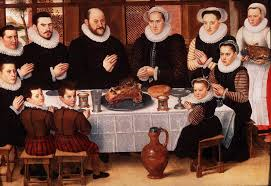
If my interpretation is correct and we are reading about the time when human beings first came under biological compulsion to kill and eat animals, on a mass-scale, the two questions arise: Why did human beings come under the compulsion to kill and eat animals on a mass-scale? Why did the human species initially feel guilty about it?
The human brain weighs about 3.25 pounds (1400-1500 grams) and is three-to-four times as large as that of the chimpanzee or gorilla. The brain only accounts for two percent of our body weight, yet requires something like twenty percent of our need of energy intake at rest. Since the human brain seems to have reached its modern size by between 150,000-100,000 years ago (5), I think this helps explain the profound guilt, out of which emerged the ritual of the Animal Master.
Between 300,000 and 250,000 years ago, so called "premodern" humans stumbled upon the idea of using fire to cook, which enhanced the amount of energy they could extract from the food (6).
Here are some conclusions that all of this suggests to me:
1. It seems to me that between 300,000/250,000 and 150,000/100,000 years ago, the human species was completing the final leg of the journey to becoming what we are today---since the brain reached its modern size by 150,000/100,000 years ago.
2. As the human brain was growing larger and larger, within the 300,000/250,000 to 150,000/100,000 period, the organ needed more and more energy to feed and sustain it.
3. Human beings found themselves, consequently yet compulsively driven to kill and eat more and more animals (protein), to supply that increasing energy need.
4. At this time, those human beings did not know what was happening to them; they would have had no way of understanding the changes going on within them.
5. The fact of their increasing energy need to feed their growing brains and the fact that they were "slaughtering" their "friends and patrons," created within these societies a cognitive dissonance. The question they would have asked themselves was: Why are we mass killing our friends and patrons like this? Why can't we stop?
6. What they came up with, to remove that cognitive dissonance, was the ritual of the Animal Master.
7. If the final leg of the human journey to become what we are today, happened between the 300,000/250,000 and 150,000/100,000 years ago period, then let us say that human beings' guilt about mass killing and eating animals (for protein), hit its peak during the start of the 150,000/100,000 years ago period.

The Journey of Guilt
I. Let us call the people of the 150,000/100,000 years ago period---(when the brain reached its "modern" size)---modern humans. Let's call the people of the pre-150,000/100,000 years ago period---(before the human brain reached its modern size)---premodern humans.
II. If guilt is the sense that you have done something you know is wrong, then where did the newly minted modern humans---at the very opening of the 150,000/100,000 years ago period---get their sense of guilt?
III. The newly minted modern humans got their sense of guilt, about now mass killing and eating animal flesh, by way of the "knowledge" that they were doing something "wrong."
IV. How did the newly minted modern humans, at the start of the 150,000/100,000 years ago period, "know" that their "current" activity of mass killing and eating animals was "wrong"?
V. They knew it was wrong because the practice of mass killing and eating animals, was a dramatic break with previous practice---which would have been much, much, much, much, much more restrained because of a smaller brain, which would have made much, much, much, much, much less energy demands than the human brain of the "modern" period.
VI. This means that the people we, today, call "modern" humans, identified with the people that we, today, call "premodern."
VII. The guilt of the newly minted modern people came from respect for the tradition built up over at least many tens of thousands of years (if you count from the time when we think people discovered fire, 300,000/250,000 years ago), by the so-called "premodern" humans---and the sorrow the former feel about having broken with this tradition, albeit under overwhelming biological compulsion.
VIII. It is the fact that the newly minted modern humans shared, with the so-called "promodern" people, the tradition which honored and respected the animal kingdom, as "friends and patrons," messengers from the gods, colleagues in spiritual matters (which means that, in the past, the people did not kill and eat animals nearly as much, due to the much less demanding energy requirements of smaller brains)---and the sorrow and guilt, felt by the former, in dramatically breaking that tradition (established by the premoderns), by killing and eating animal fless on a mass-scale, which would have caused a feeling of cognitive dissonance in the newly minted "modern" society.
VIV. The question that would have confronted the newly minted modern societies might have went something like this: How do we going on mass killing and eating animals flesh, which we seem to need, which may be why we cannot stop ourselves, without feeling like we are betraying the animal world, who are our "friends and patrons," messengers from the gods, our colleagues in spiritual matters?
X. Finally, what we can say, then, is that the ultimate solution that newly minted modern human society came up with, to remove the cognitive dissonance, was a very Gnostic solution, after all. It was one that decided that the destruction of the outer, physical body was not "true" or "total" death; and that there is an inner light of some kind, which is virtually inextinguishable, and can be returned again and again and again, to life with different and interchangeable flesh suits.
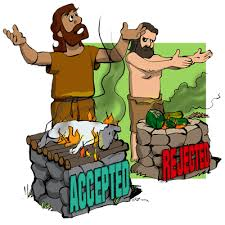
Cain and Abel
Sometime between 8,000 (7)-9,000 B.C.E (8)., human beings started making the transition from a mostly nomadic, hunter-gather existence to one based on settled, village farming life. With this, religious veneration shifted, somewhat, away from gods of the hunt, as it were, to deities concerned with fertility of the soil (9).
You know, it is interesting to take everything we've been talking about and apply it to a re-reading of the Biblical story of Cain and Abel. Genesis Chapter 4, verses 6-7: God has something to say to Cain, after "He" has accepted Abel's "sacrifice" (there's a reason I put that word in quotes) and rejected his.
Abel's "offering" was sheep. Cain's was produce from the fields, fruits and vegetables.
And the Lord said unto Cain, Why are thou wroth? and why is they countenance fallen?
If thou doest well, shalt thou not be accepted? and if thou doest not well, sin lieth at the door: and unto thee shall be his desire, and thou shalt rule over him.
What's going on here?
There is something to keep in mind about the Bible. It was written over many centuries, in many languages, in many countries, by men who, themselves, were in many cases, centuries removed from the events they depicted. Also, it is worth mentioning that the Holy Bible never saw itself as a single manuscript. That being said, it should also be no surprise to you to hear that the Bible is a fusion of several different theologies.
That seems to be what we have in a single family---Adam and Eve's family---among the two brothers.
One thing we learned from our discussion of the ritual of the Animal Master, is that the original model of human-divine exchange was one of mutual service.
One can, therefore, say that perhaps Abel, with his "sacrifice" of sheep, represented the older tradition of human-divine exchange, based on mutual service. Perhaps Abel is not so much saying anything like, Here, God, enjoy this lamb!, as much as he is thanking his divinity for the flesh, with which he "nourished" his body and performing the ceremony to give the creatures posthumous life.
Brother Cain, in contrast, seems to have been representative of the tradition of human-divine exchange that had come to be profoundly degraded into a system of "payoffs." In other words, you have with Cain a severe departure in the way that human beings relate to the divine; it is no longer about mutual service, the way that Abel's "sacrifice" is, but it has come to be about giving the divine its "cut."
If I am right, then what we have with Cain and Abel, two very, very, very different intents informing their respective "sacrifices."
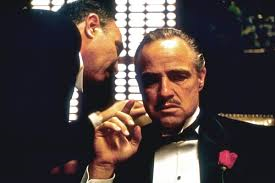
Let me just, quickly, drive the point home about the difference between mutual service and payoffs.
Take the opening scene from the classic gangster crime movie, The Godfather. Don Vito Corleone is the head of the most powerful Mafia family in the United States of America. He is a man of the old country, Sicily; and he is, in many ways, a man of old country ways.
Bonacera is an undertaker, also a man of the old country of Sicily. Anxious to fit in as an American, the undertaker had cautiously started to adopt "American ways." One of those ways, as he had interpreted, was to take a more liberal hand with his daughter, by giving her "freedom."
She stayed out late, dated boys, few of which she brought around to meet her family, and the like. One day she hooked up with the wrong duo of boys. They made her drink whiskey and tried to rape her, but "she kept her honor." But they beat her up very badly and put her in the hospital. The undertaker suggests that even when she fully heals, "she will never be beautiful again."
The American system of justice has let the undertaker down. They boys come from very rich and important families.
At first Bonacera wants the Godfather to have the two boys killed.
Vito Corleone shoots down that suggestion because it is not proportional: "That is not justice, your daughter is still alive."
Bonacera: "Make them suffer, then, as she suffers." He wants the Godfather to have the two boys beat up every bit as badly as his daughter was beaten. "Within an inch of their lives" would be nice.
But then the undertaker makes a big mistake. He says, "How much shall I pay you."
You simply cannot treat a "man of honor," like Vito Corleone like that. He and his organization are not mere thugs on the street, to whom you can slip a few dollars and have anything you want done carried out.
The offer of money to a man like Vito Corleone is a grave insult. His currency---as anyone knows whose even heard of the movie---is "friendship." If you want something from him, you must offer your friendship. Then he will help you out in friendship.
There may come a time when he asks you for a service in return: "Someday, and that day may never come..."
Let's go back to Cain again
Here's the thing about the degraded tradition Cain represents. If you are a religious person---which I, the person writing this, am not particularly---you can see that the profoundly degraded custom Cain represents, is quite demonic, if you will, in character.
If you believe that the divinity you worship is, essentially, just another supernatural thug to be "paid off," then why shouldn't you "sell your soul to the Devil"? Why shouldn't you "shop around" for whatever supernatural figure is going to get you "the best results"?
Thank you so much for reading!
References
1. Armstrong, Karen. The Case for God. Alfred A. Knopf, 2009. 5,6
2. ibid, 5
3. ibid, 5-6
4. ibid, 6
5. Pagel, Mark. Wired For Culture: Origins of The Human Social Mind. W.W. Norton & Company, 2012. 234
6. ibid
7. Harman, Chris. A People's History of the World: From the Stone Age to the New Millennium. Verso, 2008. 5
8. Armstrong, K. The Case for God. 9
9. ibid


